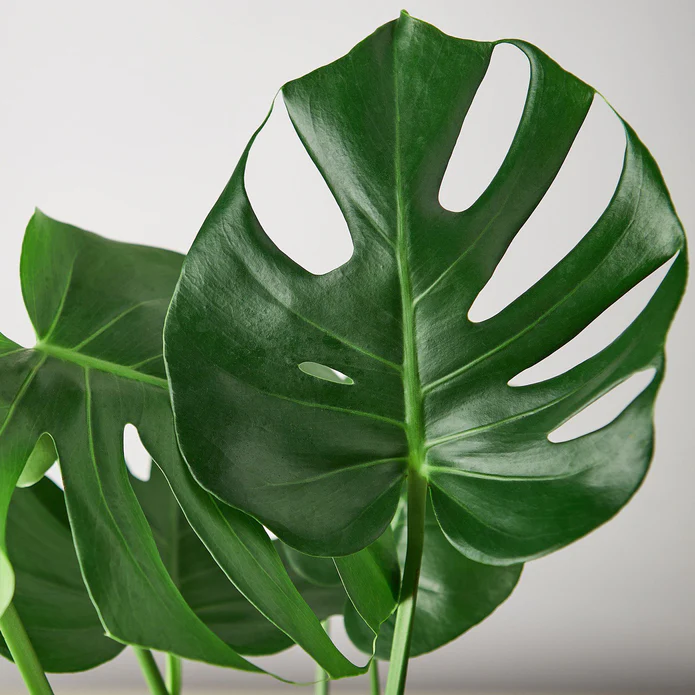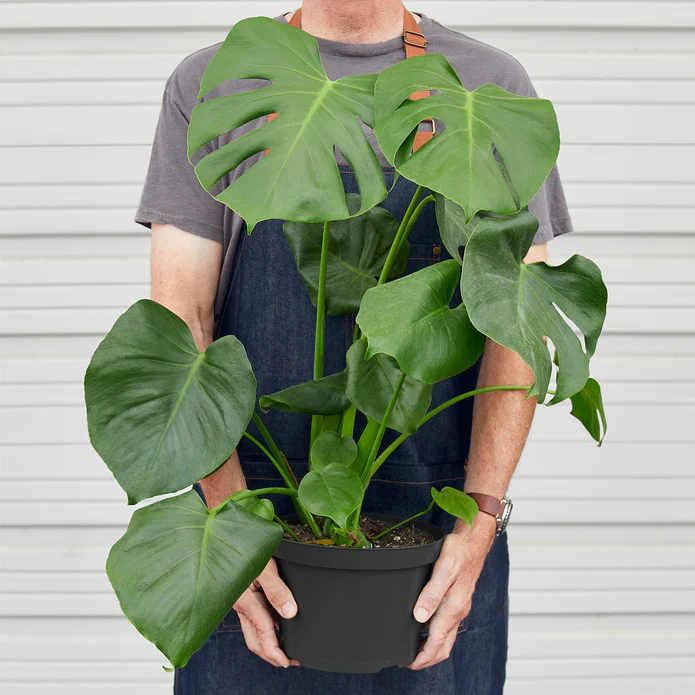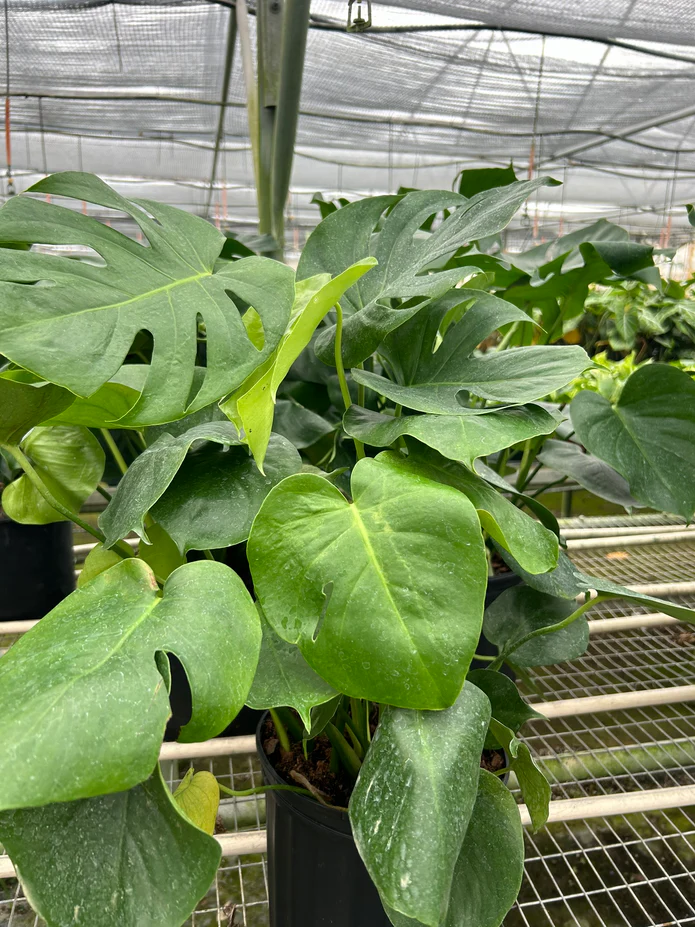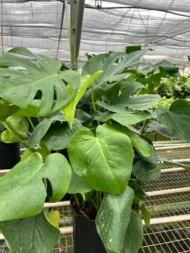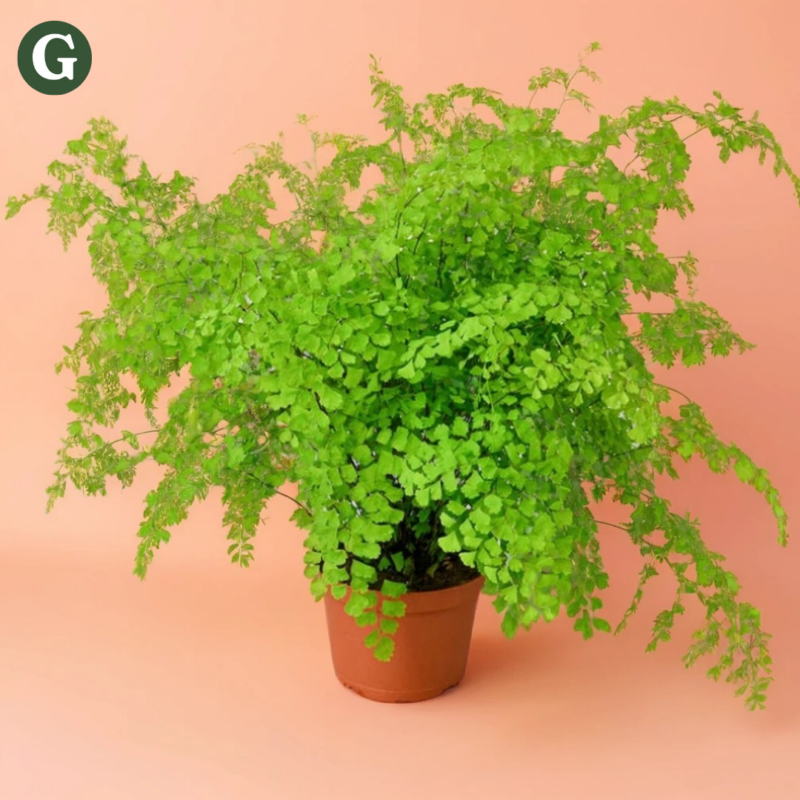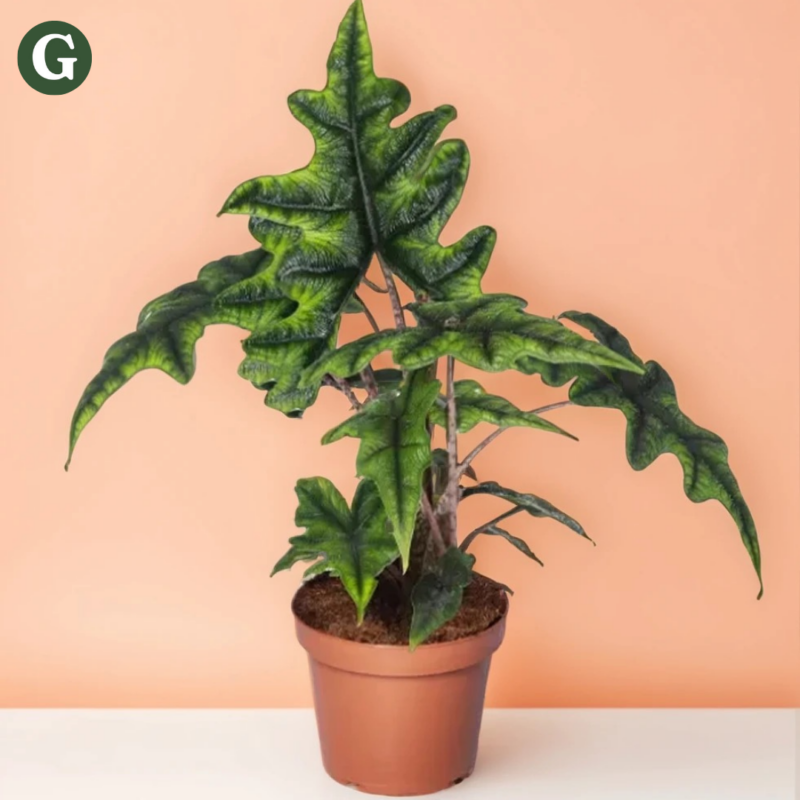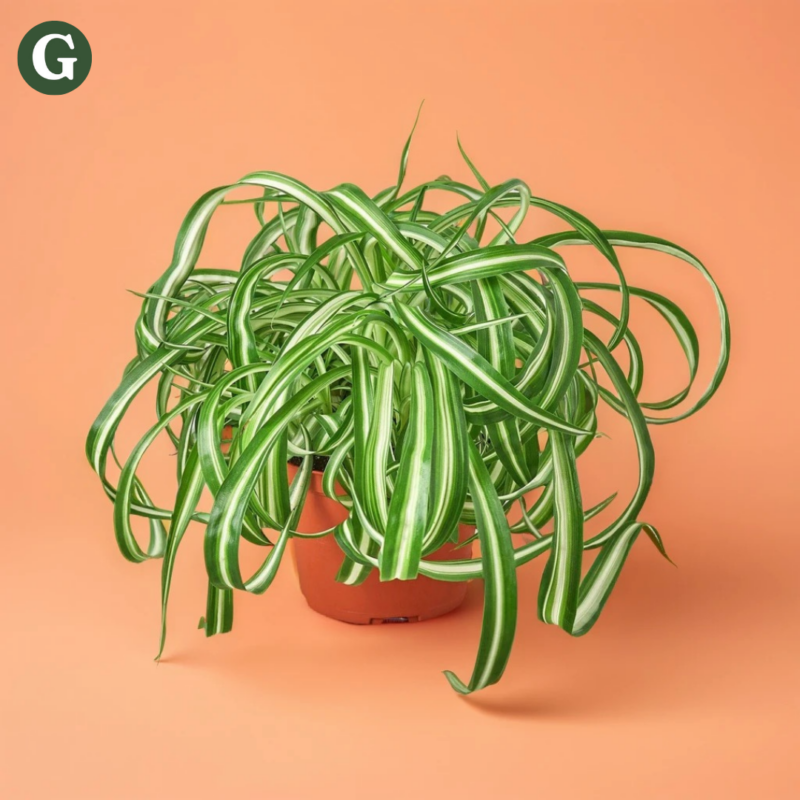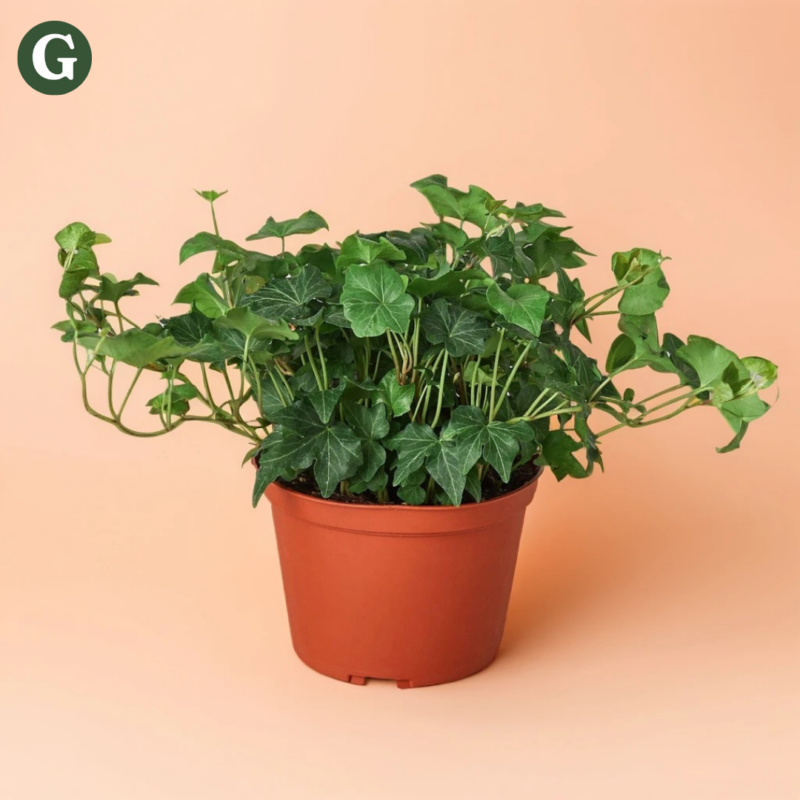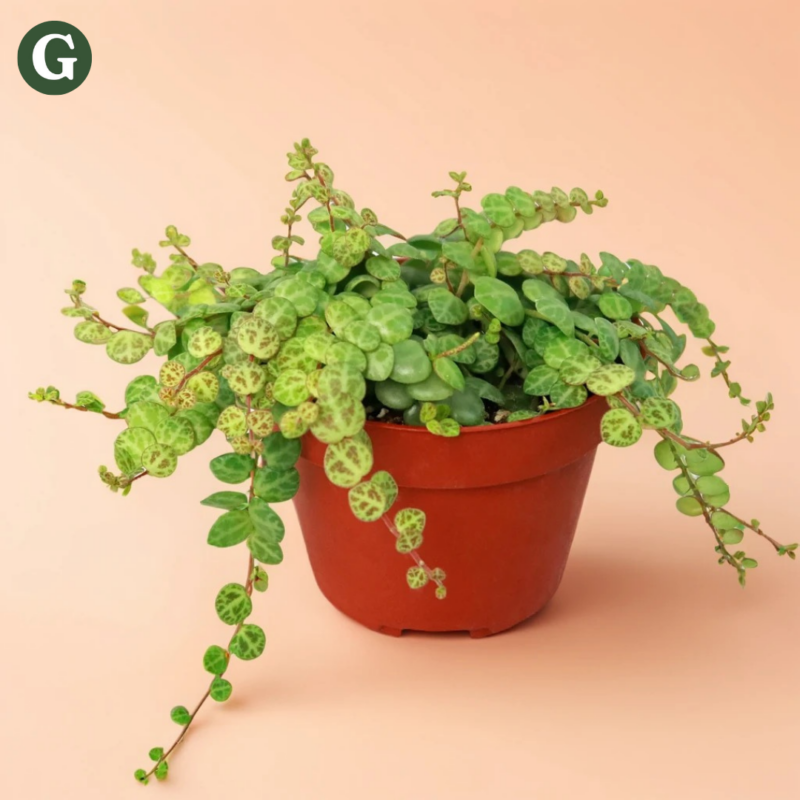Monstera Deliciosa
Botanical Name: Philodendron Monstera deliciosa
Common Name(s): Split-Leaf Philodendron, Swiss Cheese Plant
The Monstera Deliciosa is a tropical plant known for its large, deeply lobed leaves that give it an exotic, sculptural look. Native to South America, this plant can grow impressively large, reaching up to 6 feet in height and width indoors when given adequate space. Its lush, glossy green leaves develop natural splits as the plant matures, which help it withstand windy conditions in the wild and create a dramatic visual effect in the home.
Swiss Cheese Plants thrive in bright, indirect light but can adapt to lower light conditions, though with slower growth. They prefer well-draining, moist soil, and it’s best to allow the top inch of soil to dry out slightly between waterings. High humidity enhances its growth, though it can adapt to average indoor humidity levels.
Air Purifying Qualities: The Monstera Deliciosa is known to help purify indoor air by absorbing toxins like formaldehyde and benzene, releasing fresh oxygen in return. This plant is a great choice for improving air quality, especially in larger spaces due to its significant leaf surface area.
Note: The Monstera Deliciosa is toxic to pets and humans if ingested due to calcium oxalate crystals, which can cause irritation and digestive discomfort. Keep it out of reach of pets and children for safety.
Care Insights & Expert Tips
- Support and Growth Pattern: As a climbing plant, it benefits from a moss pole or trellis, which will allow the plant to produce larger leaves with more pronounced fenestrations.
- Fertilizing Details: Use a balanced, diluted liquid fertilizer every 4-6 weeks in spring and summer. Avoid fertilizing in winter when growth slows. Too much fertilizer can lead to salt buildup, so flush the soil every few months.
- Pruning Techniques: Trim any yellow, damaged, or overly long vines to encourage a bushier shape. Clean pruning shears with rubbing alcohol before and after pruning to prevent disease spread.
- Pest Management: Regularly inspect for pests like spider mites, scale, and mealybugs, which are attracted to the large leaves. Wipe the leaves with a damp cloth once a month and treat any infestations with neem oil or insecticidal soap. Spider mites, in particular, thrive in dry environments, so keeping humidity high can prevent them.

Visit our plant care library
Find essential tips to keep your plants thriving, vibrant, and healthy.

